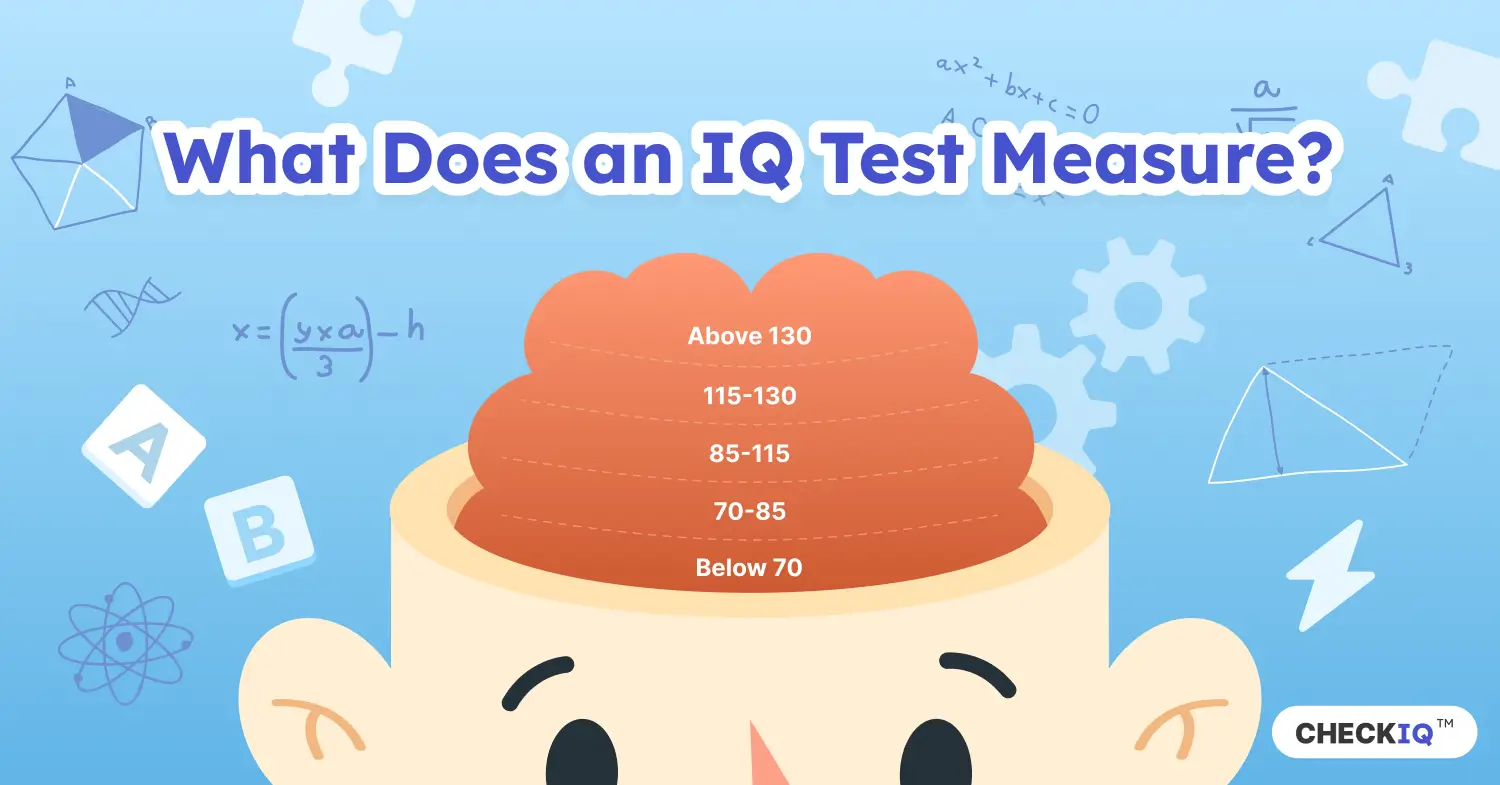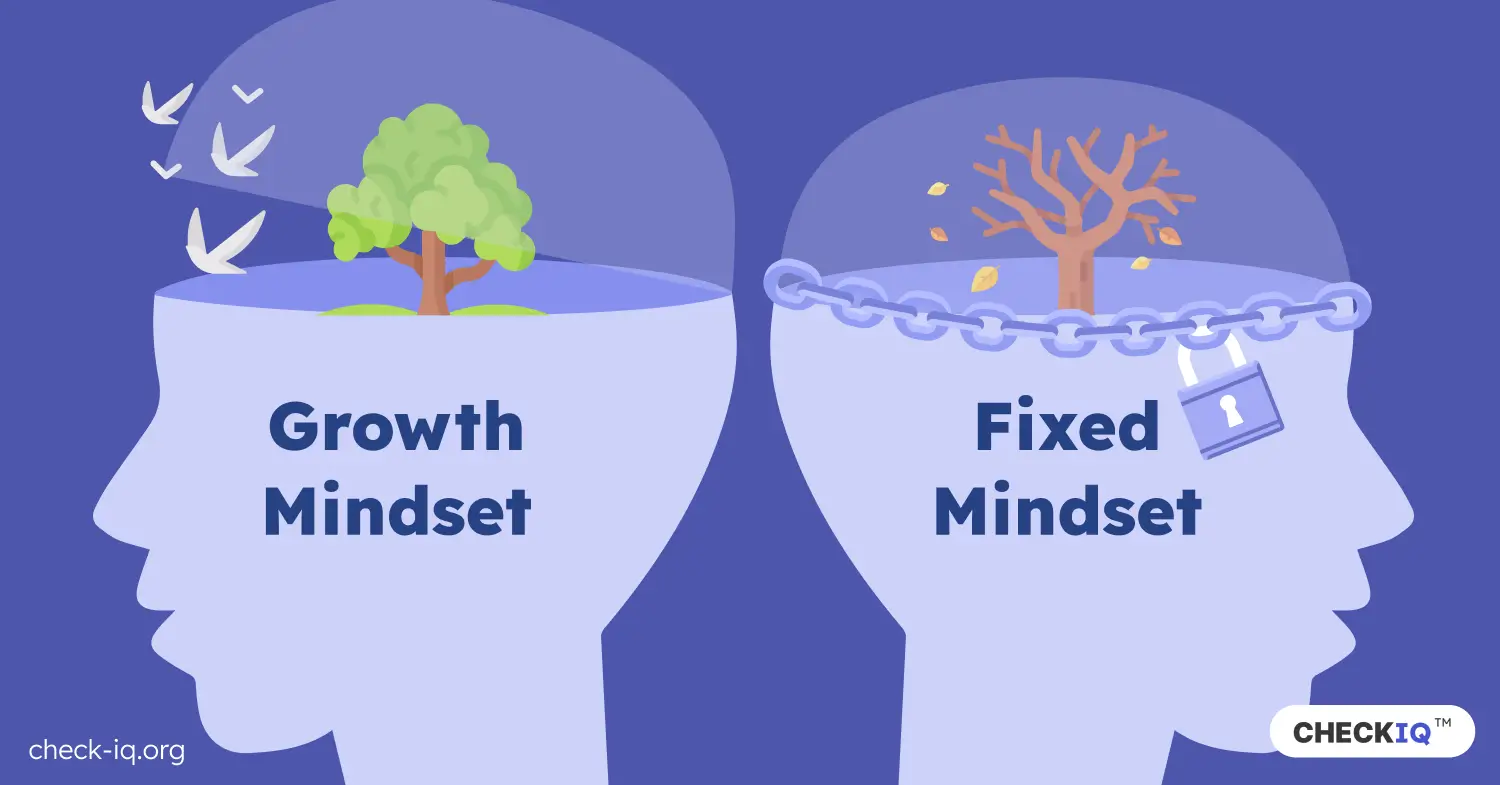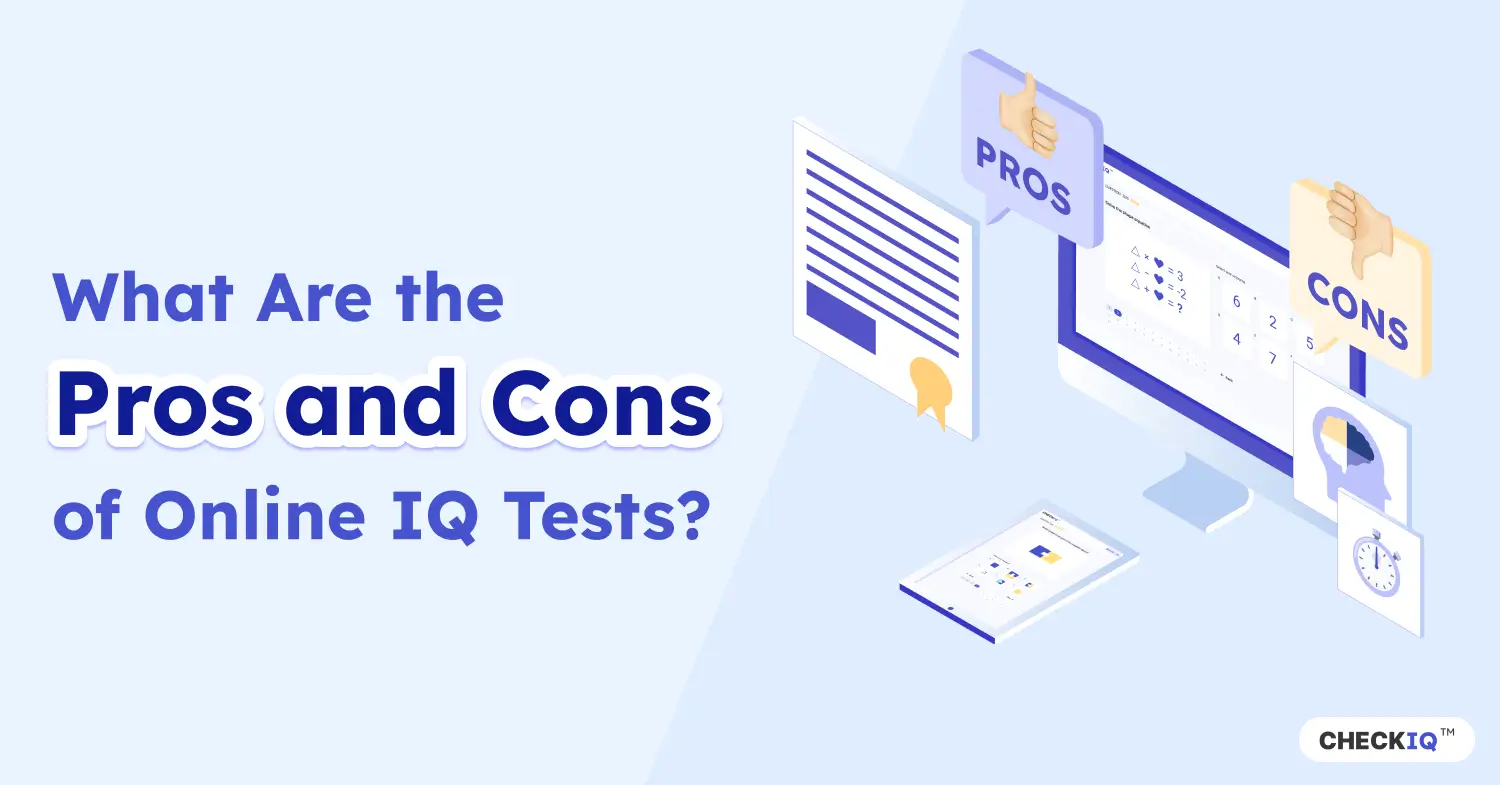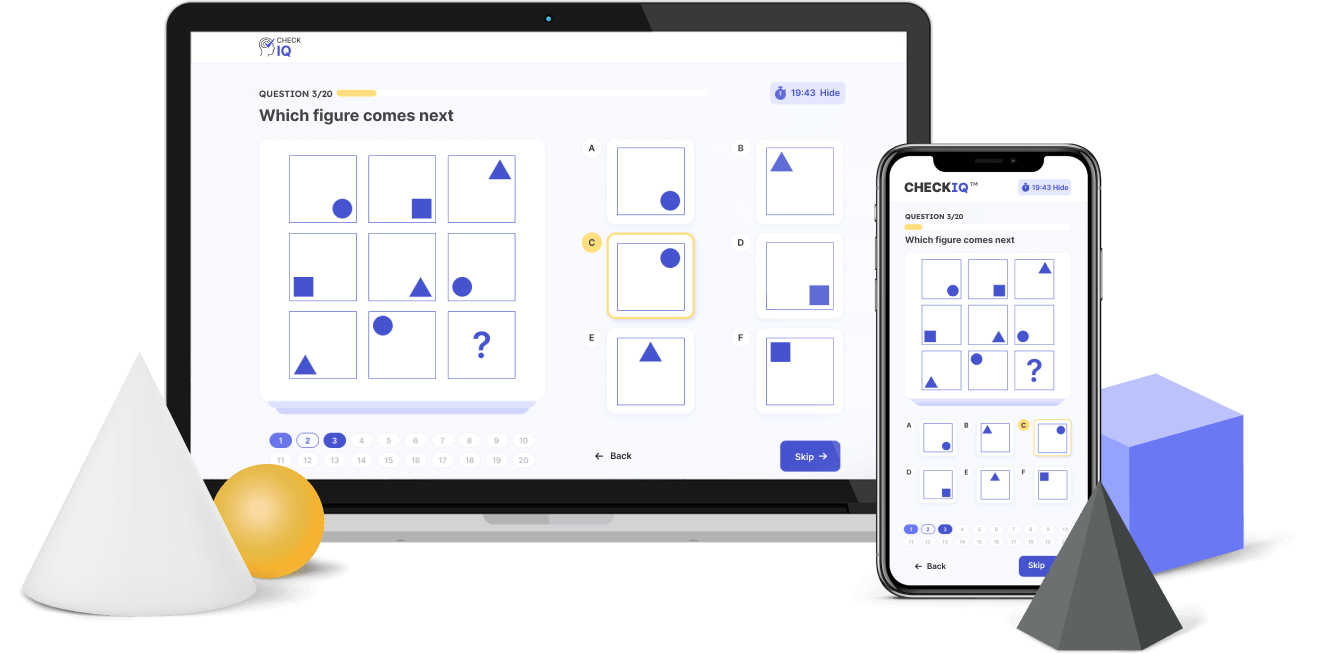Understanding IQ Tests: What Do They Measure?
Have you ever wondered about the story behind IQ (Intelligence Quotient) tests? Well, there's so much more to it than using numbers to explain cognitive function and this article tells you all you need to know.
Historical background and development
IQ tests have certainly captured our interest for over a century, but not many people know how it started. Originally developed by French psychologist Alfred Binet in the early 1900s, the Intelligence Quotient (IQ) was designed to identify educational needs among children.
Binet's invention was deemed ground-breaking, as it attempted to quantify a range of intellectual abilities. These are what we now refer to as cognitive abilities, encompassing reasoning, problem-solving, and mental agility, also known as 'fluid intelligence'.
Which skills and abilities are assessed?
IQ Tests assess capabilities grouped under what psychologists term 'general intelligence.' This includes:
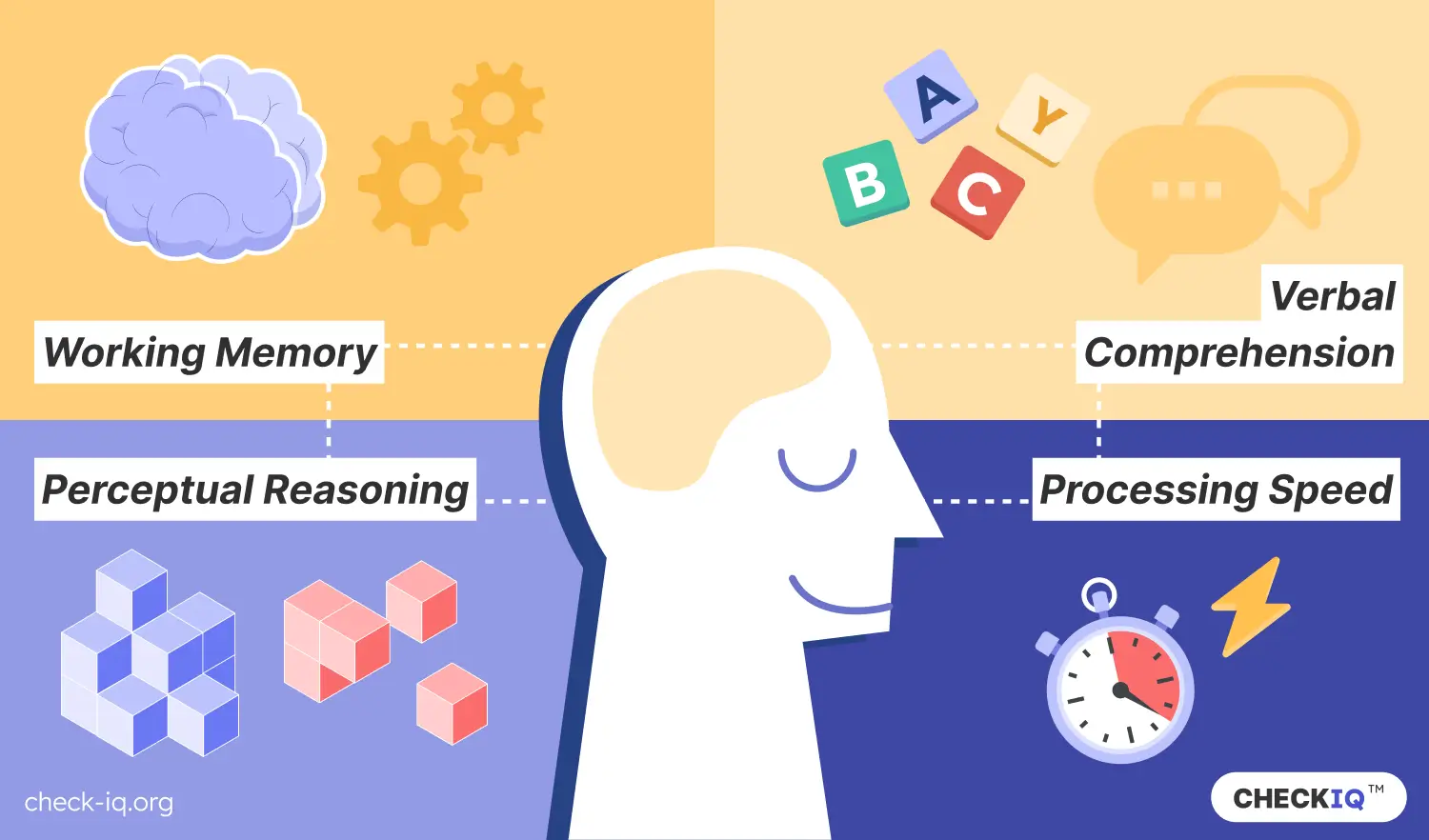
- verbal comprehension for language and concepts understanding
- working memory for holding and manipulating information in real-time
- perceptual reasoning involving visual and spatial processing
- processing speed, which is about how quickly one can perform simple cognitive tasks
Psychologists and experts often rely on the IQ scores to diagnose and develop educational plans for children, making them essential tools in the psychology field. In addition to identifying signs of above average IQ – or conversely, signs of below average IQ –, these scores help tailor educational strategies to individual needs. Though insightful, the test results provide only an approximation of one's intelligence quotient, not a definitive measurement.
A reliable 100% adaptive online IQ Test. Get your IQ score immediately.
Start My IQ Test
How IQ Tests Work: Methodology
The testing process
IQ tests are highly standardized to ensure uniformity across different test environments. This standardization is critical to eliminating external factors that could affect the results, providing a reliable metric for intellectual assessment. However, despite these precautions, it is almost impossible for any standardized test to capture all dimensions of intelligence comprehensively.
The different types of IQ tests
IQ tests, or intelligence tests, have long intrigued individuals eager to quantify their cognitive abilities. Each test aims to capture a slice of intellectual capability through various challenges and puzzles. Let’s talk about some of the most widely used IQ tests.
The Stanford-Binet Intelligence Scale, for example, is one of the earliest forms of IQ testing and focuses on verbal reasoning, quantitative reasoning, and abstract/visual reasoning.
On the other hand, modern IQ tests like the Wechsler Adult Intelligence Scale (WAIS) offer a broader perspective, including both verbal and performance IQ measures, to evaluate different dimensions of intellect. These tests are designed to assess a wide range of cognitive abilities, providing a comprehensive measure of an individual's intellectual capacity.
As you consider joining the ranks of high IQ societies such as Mensa, it's vital to understand what these tests examine. Mensa accepts a multitude of intelligence tests, including their own curated examination, which assesses logic and reasoning through a variety of questions.
Whether the measure is verbal fluency, numerical patterns, or general knowledge, the goal remains consistent: to gauge the taker's analytical and problem-solving skills.
The Raven's Progressive Matrices, another widely recognized test, challenges test-takers with identifying patterns in abstract shapes. This test sidesteps language and cultural specifics, aiming to provide an unbiased measure of general intelligence. It's an example of how modern IQ tests strive to adapt and offer a fair evaluation of intelligence today, considering the diversity of individuals taking the test
How the IQ score is calculated
This is probably something most people want to find out. Well, typically IQ test scores are calculated using a method known as norm-referenced scoring. This means the scores are based on a comparison with the performance of others who have taken the same test. This usually falls within a broadly representative population. The process starts by setting the average score for the test at 100, with scores dispersed around this average using a standard deviation – a statistical measure of variation – of 15 points.
Here’s how it works:
- First, each individual's raw score is calculated based on the number of questions they answered correctly.
- Second, this raw score is then transformed into a scaled score that takes into account the difficulty level of each question and the average performance of the test-takers. This scaling helps to ensure that the scores represent a fair comparison between different sets of test questions and different groups of test takers.
- Third, these scaled scores are converted into an IQ score using the norm-referenced scale. Because the average IQ score is set at 100, the scores are adjusted so that the bulk of scores fall near this central value.
How to interpret IQ scores
IQ test scores can be grouped per ranges of intelligence quotient as follows:
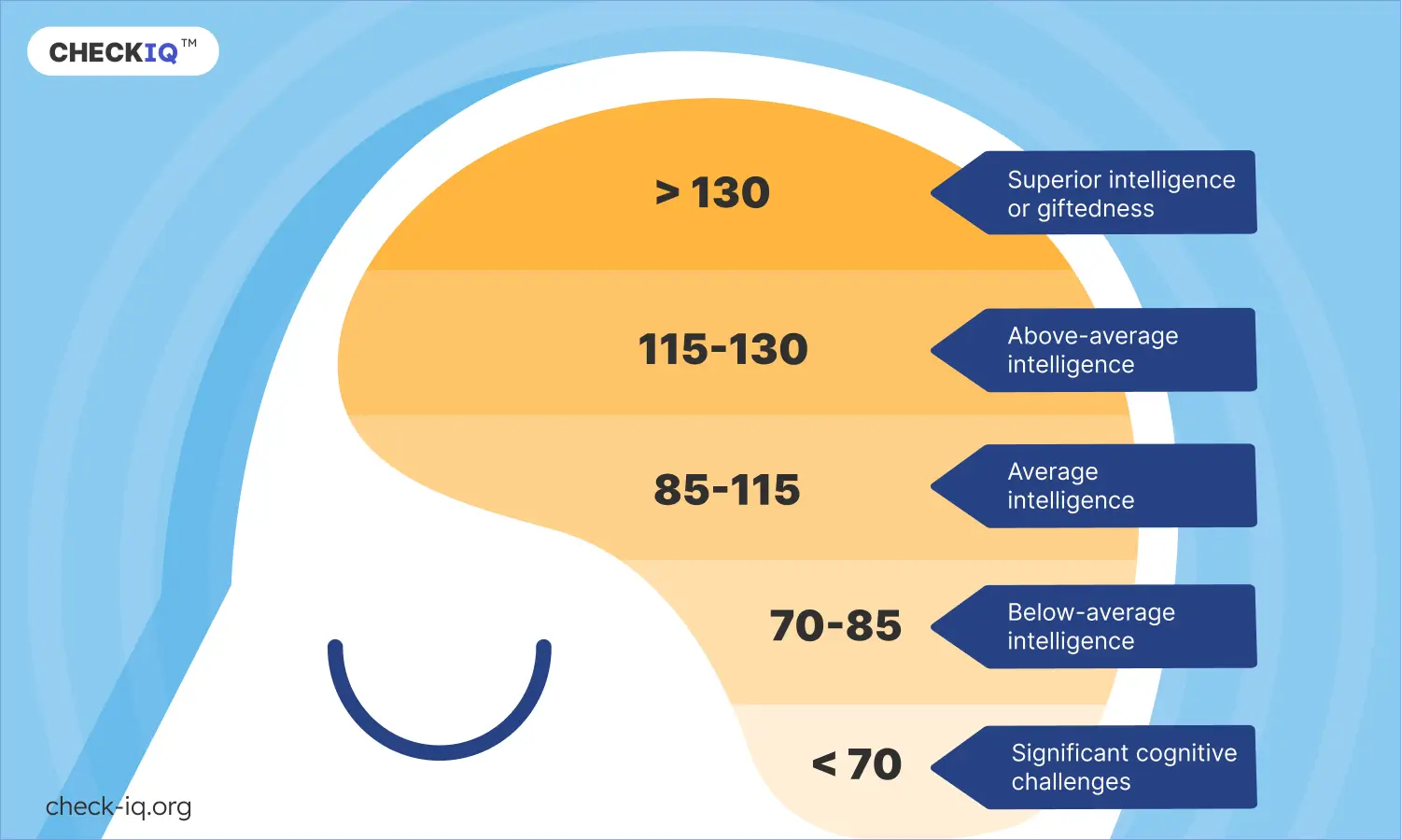
- Below 70: Suggestive of developmental delays or significant cognitive challenges.
- 70-85: Typically indicates below-average intelligence.
- 85-115: Considered within the average range.
- 115-130: Reflects above-average intelligence.
- Above 130: Often indicates superior intellectual capability or giftedness.
Higher IQ scores, which is often regarded as 130 and above, suggest a strong ability in areas such as reasoning and logic. However, these high IQ scores can sometimes raise as many questions as they answer. Researchers continually explore the factors that might influence these numbers, whether it's age, education, your parents’ IQ, or something as simple as how well you prepared for it and how well you slept the night before a test. Even your mindset can significantly influence your IQ.
Additionally, studies have pointed out that attributes, such as motivation, play a crucial role in how people score on IQ tests and, by extension, how they approach challenges and opportunities in their careers and personal lives. This gap highlights the importance of viewing these scores as indicative, not definitive, of a person's total capabilities.
Difficulty of Interpreting IQ Test Results
Ethical and historical controversies
The use of IQ tests has been controversial, particularly due to their historical association with the eugenics movement. In his TED talk, psychologist Stefan Dombrowski highlights how these tests were used to justify racial discrimination and forced sterilizations, underscoring the dangers of misusing scientific tools for ideological purposes.
Accuracy and reliability concerns
Despite their structured design, the reliability of IQ tests is frequently debated. I mean, it's a test that uses numbers to qualify a whole person’s intelligence, of course not everyone would agree.
Originally, IQ scores were thought to predict academic and job performance effectively. However, subsequent studies have revealed that these scores correlate less significantly with job performance, especially in roles that demand high complexity.
Now, this insight has led to questions about the broader applicability of IQ tests in predicting life success, suggesting that other factors, such as emotional and social intelligence, are also crucial.
For an accurate IQ test, it is essential to consider tests that are scientifically validated and designed by reputable sources. Only then can these tests provide a reliable measure of cognitive abilities, even if they can't capture the full spectrum of human intelligence.
Controversy in educational settings
In educational contexts, IQ tests are a standard tool used by psychologists to develop tailored educational plans. However, methods like XBA and PSW, which interpret cognitive profiles, are under debate.
Critics argue these methods lack robust empirical support and could result in inappropriate educational placements. This controversy highlights the need for cautious interpretation of IQ test results and for updated, evidence-based practices in school psychology.
The inherent limitations of IQ tests
IQ tests provide useful data but do not encompass the entirety of a person's intelligence. They notably fail to measure 'emotional intelligence' – the ability to understand and manage one's emotions, which is crucial for success in life.
Furthermore, emerging discussions about the Rational Quotient suggest that our understanding of intelligence could expand beyond traditional metrics, incorporating rational decision-making abilities that are not captured by current IQ tests.
Is there a better way to test intelligence?
As we learn more about the brain and various human capabilities, the concept of intelligence continues to evolve. As shown by researchers in psychology from the University of Illinois, modern tests may eventually include assessments of creativity, emotional depth, and rational thinking, offering a more comprehensive view of an individual's intellectual capacity. This evolution could lead to a better understanding of intelligence that respects the diversity of human abilities and cultural backgrounds.
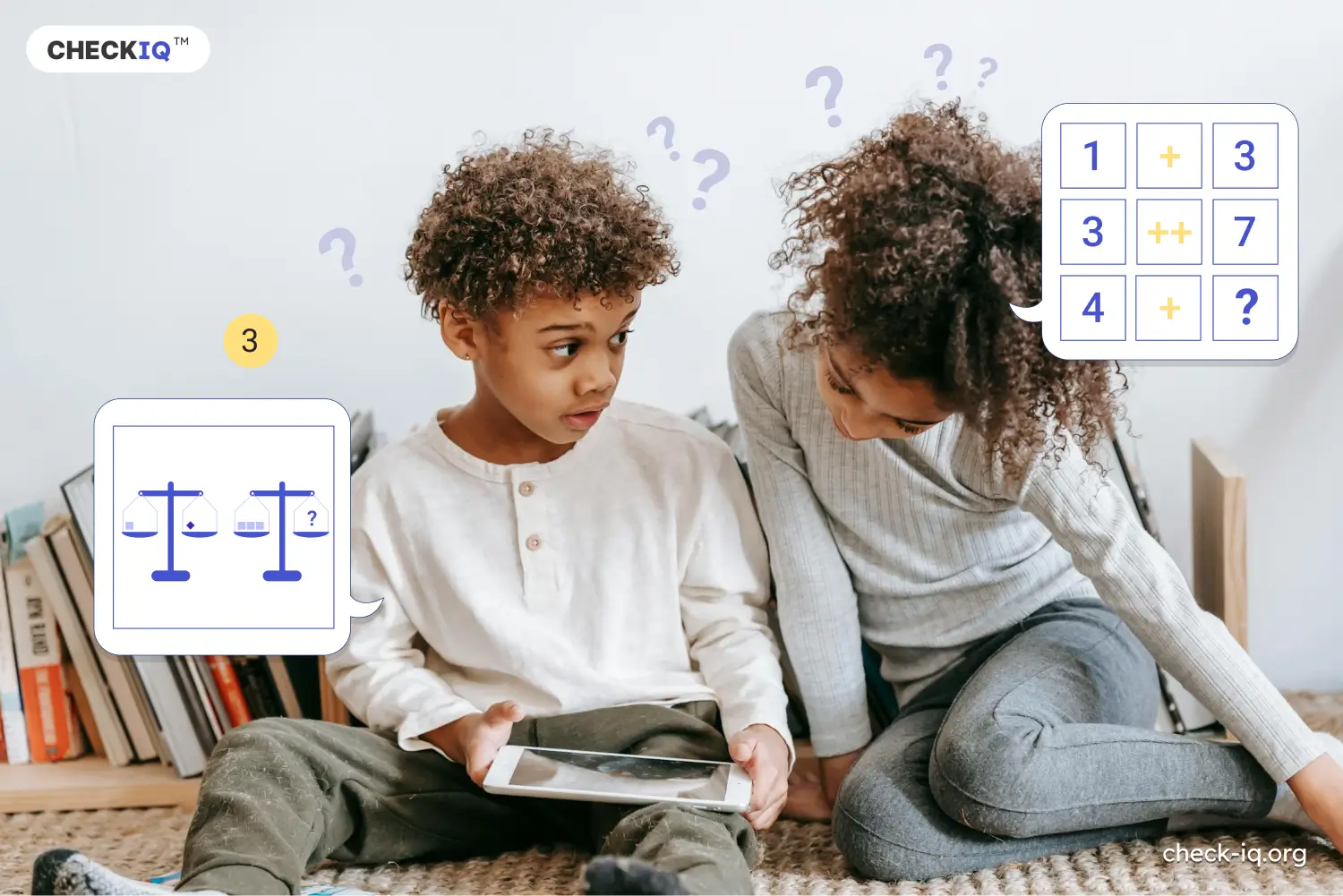
Fully grasping the scope of what IQ tests measure, and their limitations, helps to offer a more rounded perspective on human intelligence. Also, while IQ tests remain a useful tool in certain contexts, they're beginning to be supplemented by other forms of assessment that address the full spectrum of cognitive abilities and skills necessary for navigating life's complexities.

